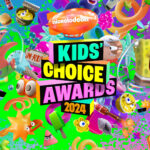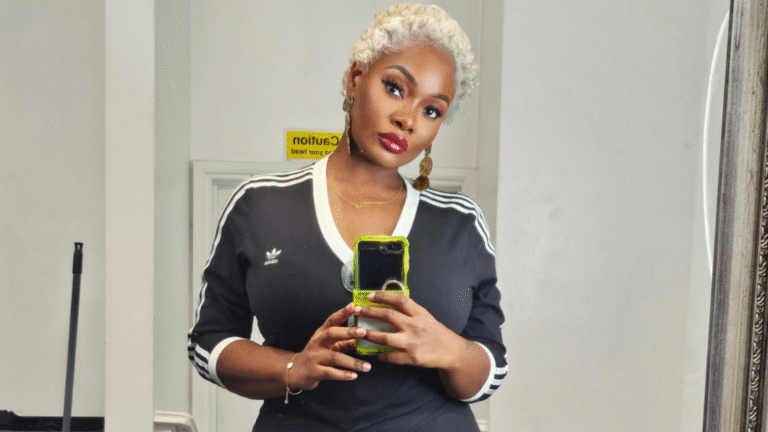Sitcoms have been one of the best ways to bring the family together and a chilling way to while away time. It is widely recognized and commonly accepted that laughter is the best medicine and TV shows like “Papa Ajasco”, “Fuji House of Commotion” and “Everybody Hates Chris” don’t say otherwise. TV shows have gone …

Comedy TV shows Then and Now

Sitcoms have been one of the best ways to bring the family together and a chilling way to while away time. It is widely recognized and commonly accepted that laughter is the best medicine and TV shows like “Papa Ajasco”, “Fuji House of Commotion” and “Everybody Hates Chris” don’t say otherwise.
TV shows have gone through a dramatic transformation since the early 1990s and 2000s, a decade known for its memorable shows that shaped and left a lasting impact on TV shows of today.
Comedy TV shows have evolved remarkably over the years, most especially with changes in the storytelling techniques and format. Today at Dtimes we will be comparing some iconic shows from different eras offering a fascinating look into this evolution.
Let us explore the differences and similarities between some iconic shows to see how comedy TV shows have changed from then to now.
Fuji House of Commotion and The Johnsons
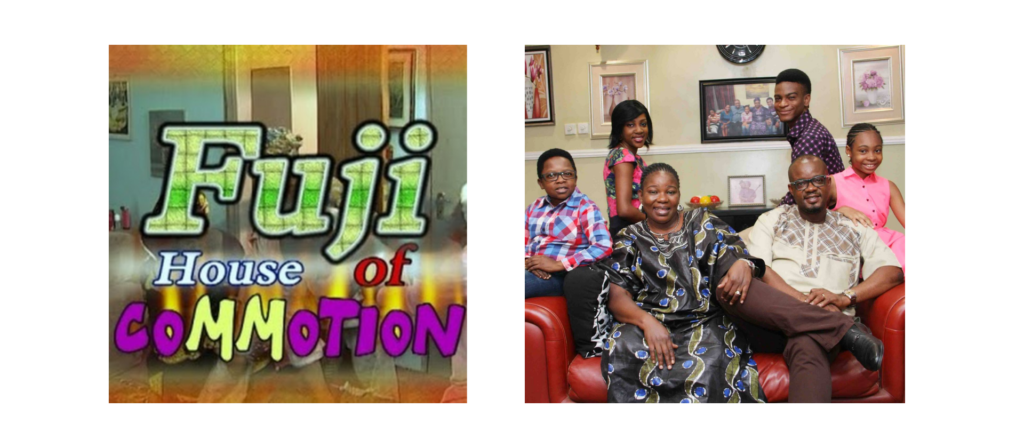
Fuji House of Commotion was one of the sitcoms that kept us laughing and glued to our seats back in the day. From the theme song to the commotion that always went down in the house, the sitcom lived up to its name. The show revolved around Chief Fuji who was married to 4 wives and had several kids under the same roof.
The Johnsons on the other hand had similarities to the fuji house of commotion. Both TV shows center around the daily lives of Nigerian families, giving viewers a comedic and also insightful look into family relationships in Nigeria. One of the major differences between both is technological advancement. The Johnsons had more refined and polished production compared to Fuji House of Commotion which aired in the late 1990s and early 2000s.
Papa Ajasco and Papa Ajasco Reloaded
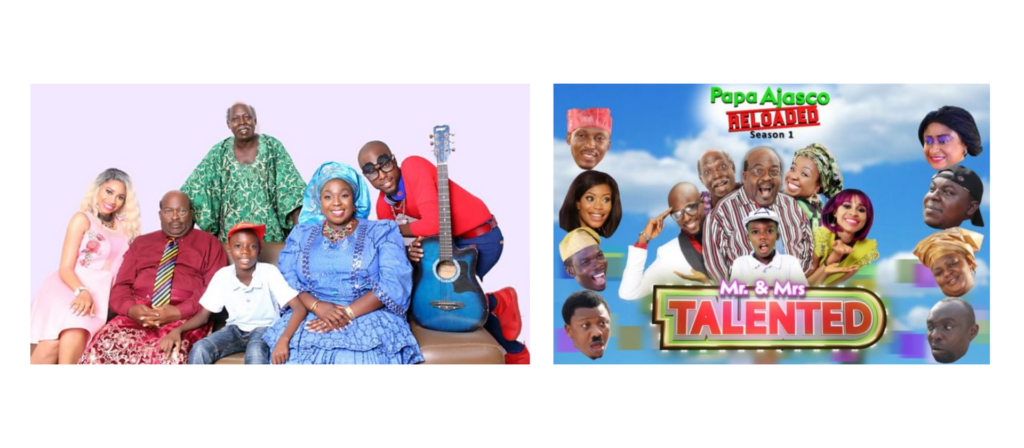
Papa Ajasco was another TV show where, as soon as you hear the theme song from wherever you are, you know you are in for an unfiltered comedy experience. From a long list of characters who had their signature looks like the main culprit Papa Ajasco to Boy Alinco, Bobo Ajasco, and Miss Pepeiye they all had their unique styles. Papa Ajasco Reloaded on the other hand was a kind of reboot of the early 2000s sitcom. Not digressing from the comedic aspect of the show, Papa Ajasco’s reloaded brought back nostalgic feelings and throwback memories from back in the day. Although it won’t feel the same as it was when we watched the old episodes as a family gathering and bonding. It’s different now because people can now watch their favorite shows on their phones and laptops in their own space.
Shows like these proved that the Nigerian film industry back in the day rolled out quality TV shows that engaged its audiences were talked about and most importantly taught us moral lessons.
Everybody Hates Chris and Black-ish
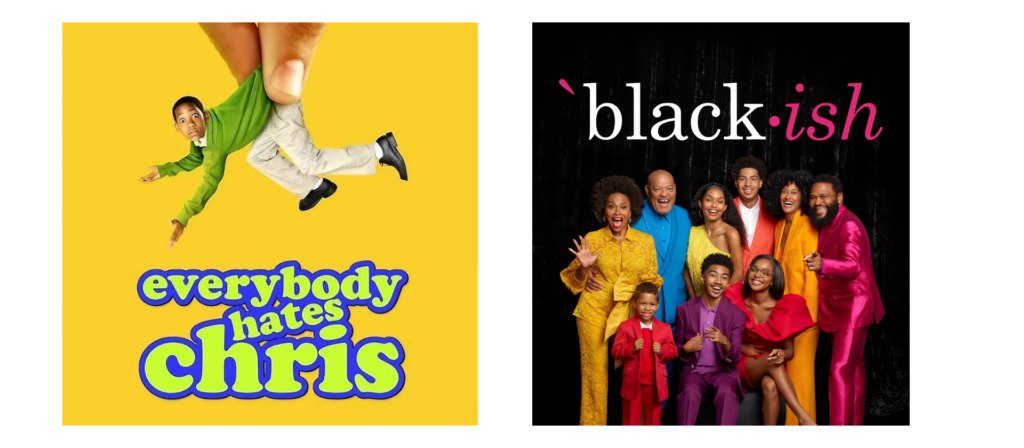
Everybody Hates Chris is a semi-autobiographical TV show that was inspired by comedy legend Chris Rock’s teenage years growing up in a black neighborhood attending a white school. The show portrays the life of young Chris and his family growing up in the 1980s in a Brooklyn neighbourhood. Lives with his parents, a hardworking father with 2 jobs, and his mother Rochelle powerful and fierce and very protective of her family. The show provides a nice narrative style that features Chris Rock’s voice-over with humorous and sarcastic commentary on his happenings. While black-ish depicts the life of an upper-class black American family, The Johnsons. Andre Johnson a successful advertising executive and his beautiful wife by the name Rainbow, an anaesthesiologist, and his 4 kids. Aside from the humorous aspect of both shows they provide s with a look at black American life and cultural experiences and emphasize strong family bonds and interactions. One of the differences between the 2 shows is that Everybody Hates Chris uses a narrative voice-over by Chris Rock while black-ish uses a direct approach.
Family Matters and Modern Family
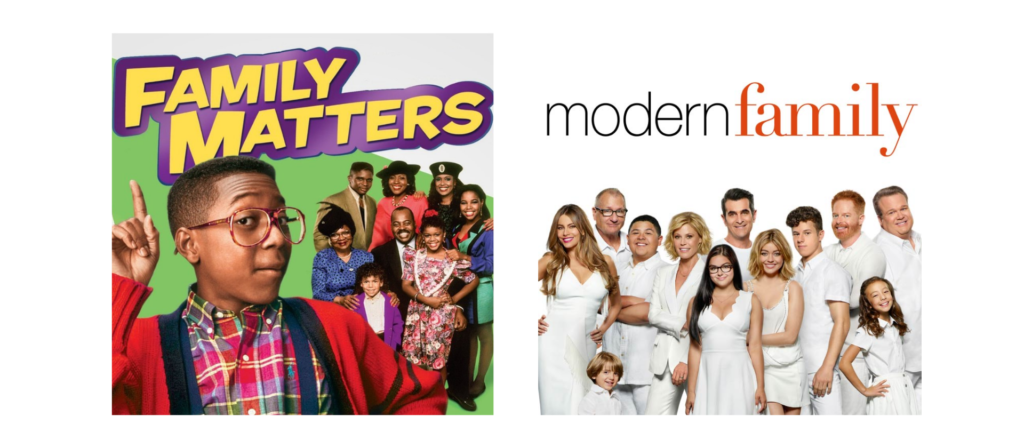
Family Matter is another classic sitcom from the 80s and 90s all about the Winslow family, a black American middle-class family based in Chicago. The show was one of the very popular TV shows from back in the day and I remember watching some episodes and cracking up always. Steve Urkel was part of the reasons I loved watching the show because he was such a quirky character with very funny catchphrases. The show also used laugh tracks as that was how typical 90s shows were aired. Modern Family on the other hand revolves around three different types of families; nuclear, blended, and same-sex families living in suburban Los Angeles. Modern Family features an ensemble cast and is shot in a mockumentary style where characters often speak directly to the camera in something like a confessional interview. The 2 shows are centered around family life and the complexities of relationships. Similar to other differences in other classic shows, Family Matters also uses the traditional sitcom format with a laugh track while Modern Family uses a mockumentary style with situational humor.
Sitcoms from back then and now highlight a significant shift in TV comedy shows. Although 90s shows will always give you that nostalgic feeling recent shows also offer innovative narratives that resonate with today’s audiences.



